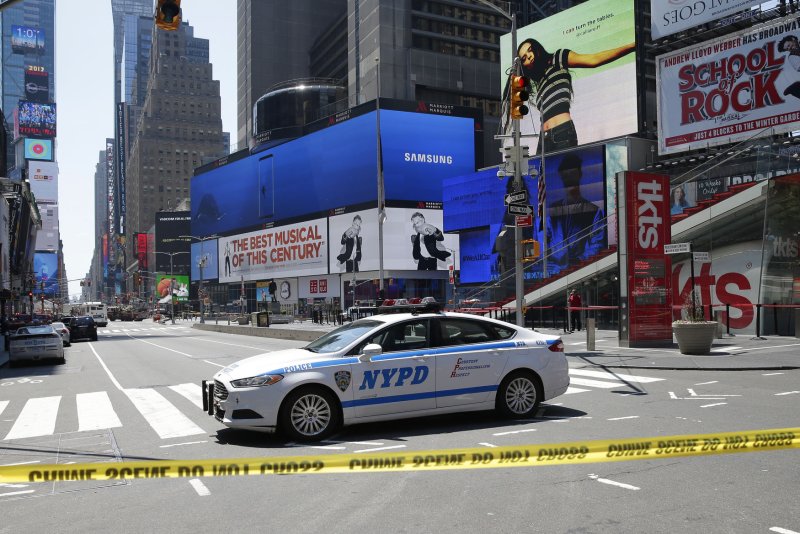More than 17,000 New York City police officers will be outfitted with body cameras by the end of 2018, Mayor Bill de Blasio said Wednesday. File Photo by John Angelillo/UPI |
License Photo
Jan. 31 (UPI) -- New York City Mayor Bill De Blasio said on Wednesday that all the city's police officers will carry body cameras by the end of this year.
De Blasio, joined by Police Commissioner James P. O'Neill, spoke at a news conference about fast-tracking funds as part of a preliminary budget, to be announced on Thursday.
"We are on track to have all precinct, transit and housing commands citywide up and running with body cameras by the end of this year," O'Neill said.
De Blasio added that the rapid funding for the cameras would lead to "fairer, faster and grow trust between police and communities."
NYPD First Deputy Commissioner Benjamin Tucker said by the end of the year, 17,100 officers will be equipped with body cameras.
"We see the benefits of body-worn cameras continually, and as a result we were able to prioritize the rollout because of those benefits," Tucker said.
Recruits to the NYPD will start training with the body cameras, starting this summer.
New York City already has nearly 1,500 officers with body cameras as part of a pilot program supervised by a federal court monitor, with 20 police commands participating in the program.
Communities United for Police Reform, a non-profit group, criticized the fast-tracking plan in a statement, while the Patrolmen's Benevolent Association argued that their footage should not be made public.
"It makes no sense to accelerate the program while there are so many unresolved issues regarding the use of bodycams, including the very basic question of whether they actually produce a meaningful change in the interaction between police officers and civilians," Patrick Lynch, the president of PBA, said.















